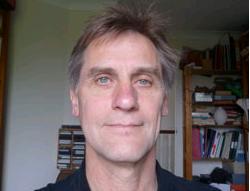Unlike modern coal and gas power stations, renewable energy generation cannot be turned on with a switch. If the wind is not blowing, wind turbines make no electricity, and if it is nighttime or cloudy solar panels do not. Similarly there are times when demand for power is low, and renewable supply actually exceeds demand and is wasted. If a country is to be wholly powered by renewable sourced electricity, a way has to be found to balance supply with demand throughout the days and the seasons.
Use Immersion Heaters for Load Control

Dr. Mark Barrett, Principal Research Fellow at the UCL Energy Institute believes that the 19 million immersion heaters around the UK could be used to store vast amounts of energy as hot water. Currently in the UK electricity demand fluctuates between around 20GW and 60GW. 19 million standard 3kW immersion heater elements would take 55GW if all switched on at the same time. By remotely controlling these immersion heater elements, excess renewable capacity could be used to heat water, and then later on when the renewable supply falls, demand for electricity would also be less since people would already have the hot water they need in their tank.
Dr Barrett suggests that all hot water tanks would be kept at above 45 degrees Celcius to ensure that hot water is always available on tap, but would be heated up to as much as 65 degrees Celcius when excess supply is available. The hot water stored acts to balance supply and demand and ensures that fickle renewable power is better absorbed, and that peak demand is reduced reducing the need to build more fossil fuel power stations.
Dr Barrett will present his research today (18th June 2009) at the House of Commons in meeting during which ways the UK and Europe could have a 100% renewable energy supply at reasonable cost will be discussed.
Ripple Control of Heating Loads
Dr Barrett proposes that the immersion heater elements be turned on and off remotely using ripple control – a communication system with transmissions sent through the mains electricity supply as high-frequency pulses. These signals would be received by small electronic switches fitted to every immersion heater element to turn immersion heaters on and off as supply and demand dictates.
Ripple control is to be introduced soon in South Africa where they have been suffering from power cuts for years due to demand exceeding supply. A similar system of demand side management (or load control) has been in place and working well in New Zealand for decades now.